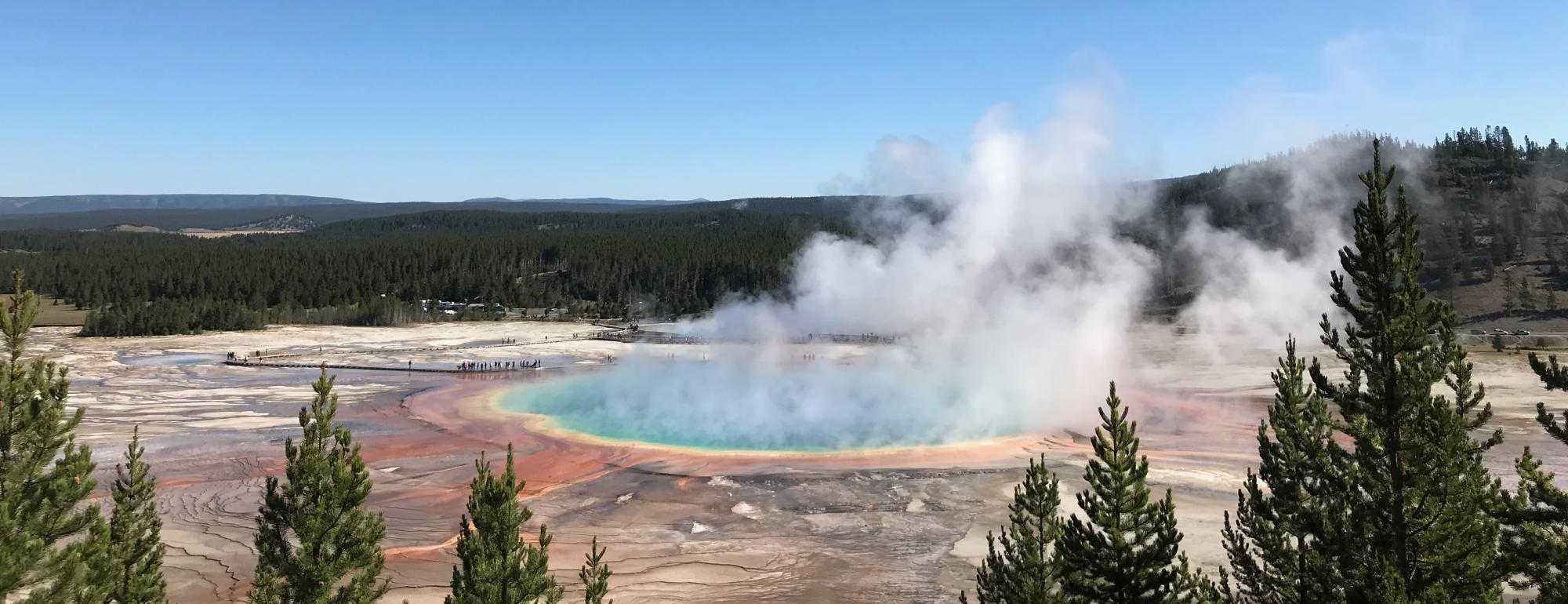Geochemistry and Cosmochemistry research in the Earth and Planetary Sciences department at UC Davis has advanced the frontiers for a range of important problems including planet formation, magma storage conditions, paleoclimates from Archean to recent, and modern environmental change. Current research programs include understanding solar system formation, planetary differentiation along with the nature of the early atmosphere, the dynamics of magma reservoir systems, the rise of oxygen in the atmosphere, fluid-rock reactions for understanding weathering phenomenon, past icehouse-greenhouse transitions, reconstructing climate variability on a range of spatial and temporal scales, global change, ocean acidification, and carbon sequestration. The research program is supported by state of the art analytical facilities in the department that are run in an open-access mode. Pico-trace Class-100 clean laboratories, sedimentary geochemistry laboratories, an electron microprobe laboratory and an array of modern mass spectrometers allow for elemental and high-precision isotopic ratio measurements spanning the entire periodic table.
Faculty
Eliot A. Atekwana | Professor
eatekwana@ucdavis.edu | 530-752-3690
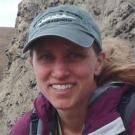
Kari Cooper | Professor
kmcooper@ucdavis.edu | 530-754-8826
Isotope geochemistry of volcanic rocks; dynamics of magma reservoir systems including magma storage, crystallization/differentiation, and interaction with wallrocks, with emphasis on crystal ages from uranium-series disequilibria measured in minerals and coexisting liquids; origin and distribution of chemical heterogeneity in the mantle with emphasis on stable-isotope tracers of recycled crustal material, including oxygen isotope variations in fresh MORB and lithium isotopic composition of altered oceanic crust. Current and recent projects include timing of magma mixing and assimilation of wallrocks beneath Icelandic volcanoes; magma storage and differentiation timescales at Mount St Helens; crystal and magma residence times at Kilauea and Mauna Loa, Hawaii; oxygen-isotope records of crustal recycling in the upper mantle beneath the Mid-Atlantic Ridge and the Australian-Antarctic Discordance; timescales and mechanisms of hydrothermal alteration of oceanic crust using U-series disequilibria and lithium isotopic composition. < /p>

Tessa Hill | Professor
tmhill@ucdavis.edu | 530-875-1910
Research areas include marine micropaleontology, geological oceanography, and paleoceanography utilizing geochemistry of marine sediment and coral records. Tessa is also involved in interdisciplinary research to investigate the impacts of ocean acidification on coastal California environments. Research in her laboratory includes
- Culturing of key species in the laboratory under controlled environmental conditions
- Monitoring modern pH variability on the Northern California coast using pH sensors and oceanographic transects
- Reconstructing climate variability utilizing geochemical proxies in foraminifera, corals, and other carbonates
- Investigating coastal environments to understand potential for carbon storage

Isabel Montañez | Distinguished Professor
ipmontanez@ucdavis.edu | 530-754-7823
Research interests are in the sedimentary and geochemical record of variability in paleo-ocean and global atmospheric compositions, global biogeochemical cycling in marine and terrestrial records, and reconstructing paleo-Earth system processes through field studies, geochemical analyses, and numerical and climate modeling. Research in the laboratory broadly focuses on development, evaluation, and application of quantitative paleoclimate proxies and and proxy-model integration with their application to intervals of time characterized by major and/or abrupt climate change and ecosystem disruption.
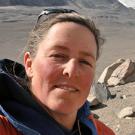
Dawn Sumner | Professor
dysumner@ucdavis.edu | 530-752-5353
Dr. Sumner’s geochemical research includes understanding how modern and ancient microbial communities interact with their geochemical environments. Her lab group studies modern microbial communities in Antarctic lakes that are shaped by their environment and can create intense geochemical gradients. For example, photosynthesis by cyanobacteria in Lake Fryxell creates "oxygen oases” under anoxic waters that are models for ecosystems on early Earth when life first evolved. Sumner’s lab group investigates geochemical traces of these types of communities in Archean microbialites.
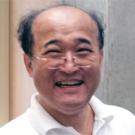
Qing-zhu Yin | Professor
qyin@ucdavis.edu | 530-752-0934
Using extinct radioactivity and general isotopic anomalies in the early solar system recorded in primitive meteorites as a tool to study the time scales and site of nucleosynthesis, the time of formation of the solar system and planetary differentiation. Isotope and trace element geochemistry with applications to crust-mantle evolution. Heavy metal stable isotope fractionation in low temperature environments on planetary surfaces or in biological systems using newly emerging high precision mass spectrometry techniques. The development of associated experimental techniques involving high precision mass spectrometry and ultra-clean sample processing in Class-100 clean laboratories for isotope analyses.
Emeriti
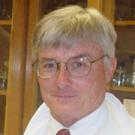
William Casey | Professor Emeritus
whcasey@ucdavis.edu | 530-752-3211
Interest is in the reactions between water, rock and minerals. Many weathering phenomena involve reactions with water on mineral surfaces, something which can be mimicked in the laboratory by studying the aqueous chemistry of metal aquo clusters by heteronuclear NMR and MS. Other interests include crystal growth, general cluster chemistry, bio-inorganic chemistry, and chemistry from an environmental aspect.
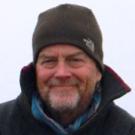
Charles Lesher | Professor Emeritus
celesher@ucdavis.edu | 530-752-9779
Experimental igneous petrology and geochemistry; phase equilibria and kinetics of silicate systems at elevated pressure and temperature; physical, transport and thermodynamic properties of silicate melts. Recent projects include (a) Laboratory: low to high pressure phase equilibria studies of basaltic systems; trace element partitioning; chemical and self diffusion studies of silicate melts; solution properties of silicate liquids from thermal diffusion. (b) Field: magmatic evolution of the North Atlantic Ocean basin and the evolution of the Iceland hot spot; petrologic studies of early Tertiary volcanic and plutonic rocks of East Greenland.
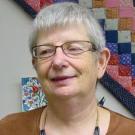
Alexandra Navrotsky | Professor Emerita
anavrotsky@ucdavis.edu | 530-752-3292
Research relates microscopic features of structure and bonding to macroscopic thermodynamic behavior in minerals, ceramics, and other complex materials. She has published over 500 scientific papers.
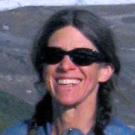
Sarah M. Roeske | Research Geologist Emerita
smroeske@ucdavis.edu | 530-752-4933
Structural geology and metamorphic petrology. Combine detailed macrostructural analysis in the field with microstructural studies, metamorphic petrology, and geochronology, in order to solve tectonic problems. Current research topics include the tectonic evolution of convergent margins in Alaska and Argentina, with a focus on determining type, age and relative significance of different periods of fault movements. Related problems include uplift of high P/low T metamorphic rocks and role of strike-slip faults at convergent margins.

Howard Spero | Professor Emeritus
hjspero@ucdavis.edu | 530-752-3307
Research focuses on the biological and environmental parameters that affect the stable isotope and trace metal geochemistry of the shells of recent and fossil organisms; marine micropaleontology, paleoclimatology, and paleoceanography. An ongoing multi-year field research program involving graduate and undergraduate students has been studying living planktonic foraminifera in the Southern California Borderland and the Caribbean. The results of this study are being used to interpret fossil foraminifera stable isotope data from Indian and Atlantic Ocean deep sea cores in order to reconstruct paleoenvironmental sea surface temperatures, nutrient levels and CO2 concentrations during the Pleistocene.
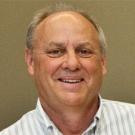
Robert A. Zierenberg | Professor Emeritus
razierenberg@ucdavis.edu | 530-752-1863
Aqueous geochemistry; stable isotope geochemistry; economic geology. Research has focused on water/rock interaction in active and ancient hydrothermal systems, including the "black smokers" on the mid-ocean ridges. Research topics include the geology and geochemistry of sulfide deposits and hydrothermal alteration in seafloor hydrothermal systems and on-land analogs.

